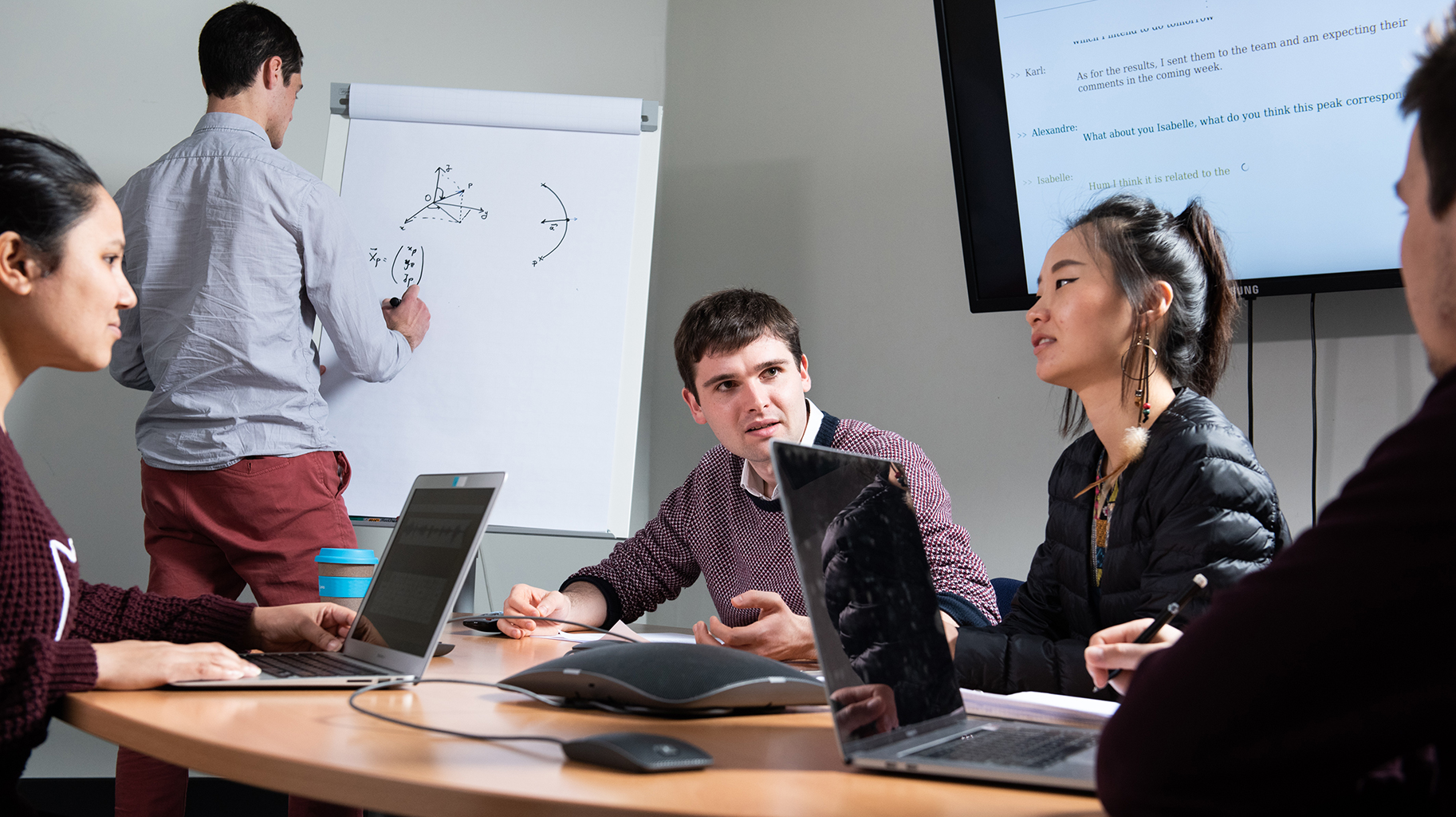
Inria Chile is expanding its Associate Teams program, incorporating four new international projects in 2024, three of which are co-led by researchers from the Universidad de Valparaíso, an institution with which Inria Chile recently signed an agreement to renew and foster the existing institutional cooperation alliance between France and Chile.
These new collaborations aim to strengthen and enhance joint research work in digital sciences and technologies and promote Franco-Chilean scientific networks.
Among the projects coordinated by the Universidad de Valparaíso, on the French side, team aStoNiche is led by the BIGS project-team from Inria Centre at Université de Lorraine, and the Associate Teams FUSION and SWAM are respectively led by the BIOVISION and CALISTO project-teams, both from Inria Centre at Université Côte d'Azur.
The fourth project, PANDA, is led on the French side by the PARADYSE project-team from Inria Centre at the University of Lille, and by the Universidad de Chile on the Chilean side.
The Associate Teams program is an essential element of Inria's international policy and one of the main tools to support bilateral scientific collaboration, promoting and strengthening joint research and strategic alliances abroad. Each group consists of researchers from Inria and Chilean universities who share a common research project for 3 years, jointly defining a scientific objective, a research plan, and a bilateral exchange program.
Since Inria established itself in Chile in 2012, this program has funded more than 30 collaborative research projects between France and Chile in digital science and technologies.
In 2024, the program includes nine Franco-Chilean associate teams in which researchers from Inria in France and various Chilean institutions participate. In addition to the four new teams already mentioned, the Pontificia Universidad Católica de Chile leads three, and the Universidad de Chile leads two. Additionally, researchers and students from other Chilean universities collaborate on these projects, such as the Universidad Técnica Federico Santa María, the Universidad Austral de Chile, the Universidad de Santiago, the Universidad Adolfo Ibáñez, and the Universidad de O’Higgins.
Verbatim
These associate teams are fundamental elements of Inria's international policy and seek to strengthen joint research and strategic alliances. Through this initiative, Inria continues its commitment to fostering innovation and knowledge exchange with its Chilean partners, thus consolidating its position as a leader in digital sciences and technologies.
CEO Inria Chile
aStoNiche: Towards a Stochastic Theory of Niche Construction
This Associate Team, led by researchers from the BIGS project-team at Inria Centre at Université de Lorraine in France and the Universidad de Valparaíso in Chile, along with collaborators from the Pontificia Universidad Católica de Chile and the Universidad de O'Higgins, is dedicated to advancing understanding of how organisms modify their environment and how these modifications affect their evolution and survival.
The team is coordinated by Nicolas Champagnat, principal researcher of the BIGS team at Inria Centre at Université de Lorraine, and Rolando Rebolledo, researcher at the Universidad de Valparaíso. This multidisciplinary project also includes experts such as Coralie Fritsch and Edouard Strickler from Inria, as well as Chilean researchers such as Pablo Marquet from the Pontificia Universidad Católica de Chile and Cristóbal Quiñinao from the Universidad de O'Higgins.
To learn more about aStoNiche:
FUSION (Functional structure of the retina: A physiological and computational approach)
The Associate Team, which consists of researchers from the BIOVISION project-team at Inria Centre at Université Côte d'Azur in France and the Universidad de Valparaíso in Chile, focuses on the advanced study of the retina, combining physiological and computational approaches to explore how amacrine cells influence visual response.
Bruno Cessac, principal researcher of the BIOVISION team at Inria's center at the Université Côte d'Azur, leads the team along with Adrián Palacios, researcher at the Interdisciplinary Center for Neuroscience of Valparaíso. The team includes María José Escobar, a researcher at the Universidad Técnica Federico Santa María, and Francisco Miqueles Varela, a research assistant at the Universidad de Valparaíso. Rodrigo Cofré, postdoctoral researcher at the Laboratoire de Physique de l’Ecole Normale Supérieure in France, is also part of the team.
To learn more about FUSION:
PANDA (Partial Differential Equations, Dispersive Models and Nonlinear Analysis)
In collaboration with the PARADYSE project-team at Inria Centre at the University of Lille in France and the Universidad de Chile, PANDA is dedicated to the study of dispersive partial differential equations with applications in wave propagation and other physical phenomena.
The team is led by André de Laire, a researcher from the PARADYSE team at Inria's center at the Université de Lille, and Claudio Muñoz from the Universidad de Chile. It includes Guillaume Dujardin and Olivier Goubet, researchers in France, and María Eugenia Martínez, a postdoctoral researcher at the Universidad de Chile.
To learn more about PANDA:
SWAM: Sea, Waves, And ecosysteMs: Stochastic models for perturbed marine environments
This new Associate Team, formed by collaborators from the CALISTO project-team at Inria Centre at Université Côte d'Azur in France and the Universidad de Valparaíso in Chile, along with collaborating institutions such as the Pontificia Universidad Católica de Chile and the Universidad de Chile, is dedicated to the study of the interaction between marine industrial installations, such as desalination plants, and ocean dynamics.
The team is led by Mireille Bossy, principal researcher of the CALISTO team, and Kerlyns Martínez, a researcher at the Universidad de Valparaíso. The group include experts in fluid mechanics and marine ecology, such as Jérémie Bec and Laetitia Giraldi from Inria, and Pablo Córdova from the Laboratorio de Modelación Física del Océano in Valparaíso.
To learn more about SWAM:
